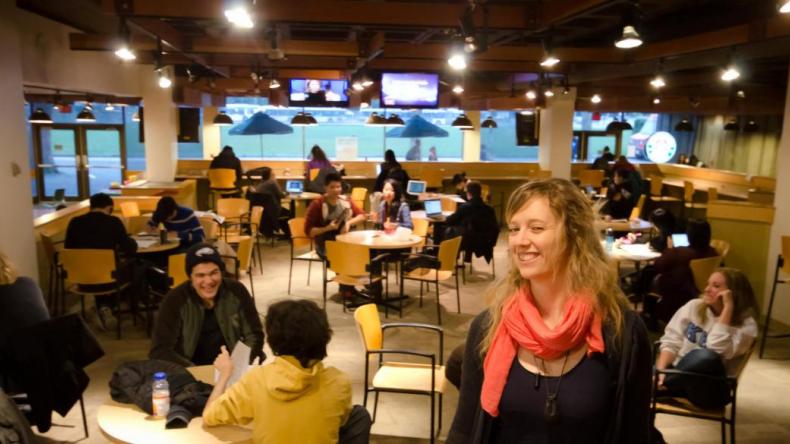
By Thomas Bevan
Although many resources go into the design, construction and operation of a physical building, this may not be a complete package for creating great places to live, work and play.
Julia Reckermann, a masters student in UBC’s Sustainable Building Science Program (SBSP), thinks it is important to increase our awareness of the connections between people and their surroundings.
The places humans inhabit must address the need for networks. Reckermann describes, “enhancing the quality of our relationships provides the opportunity to make us happier, healthier and better able to fulfil our human potential.” For example, this could be in the form of a web, which includes links between building-occupants-nature-society at large.
“What if we would start seeing buildings as nodes from which a network of relationships emanate?” Reckermann asks. With this objective in mind, designers, construction professionals, property managers and the people who inhabit these places could adopt a “living systems” approach.
A living systems approach views many individual components of a network as an interconnected whole. This means a building is no longer just an object; it’s dynamic, and the people inside are the lifeblood through which their interactions with one another and with the different components of the space make it “alive.”
Reckermann sees our current relationship to buildings as disconnected. In order to make changes, we need to reframe our perception about how buildings relate to human activity. Feedback mechanisms are one tool to do this. They allow individual components to keep in check with one another and to the requirements of the system as a whole.
For example, at the Centre for Interactive Research on Sustainability (CIRS), inhabitants were invited to provide feedback through a pre-occupancy evaluation. This research found a significant number of respondents anticipated social aspects of their CIRS experience and felt inspired by being part of something so innovative. However, now the question is how to translate this feedback into processes that lead us towards the aspirations?
To learn more about the research happening at the SBSP visit: http://sbsp.ubc.ca/about/research-snapshots/
For information on other sustainability-oriented courses and programs, visit the Sustainability Education Resource Centre or Email us for an advising appointment.